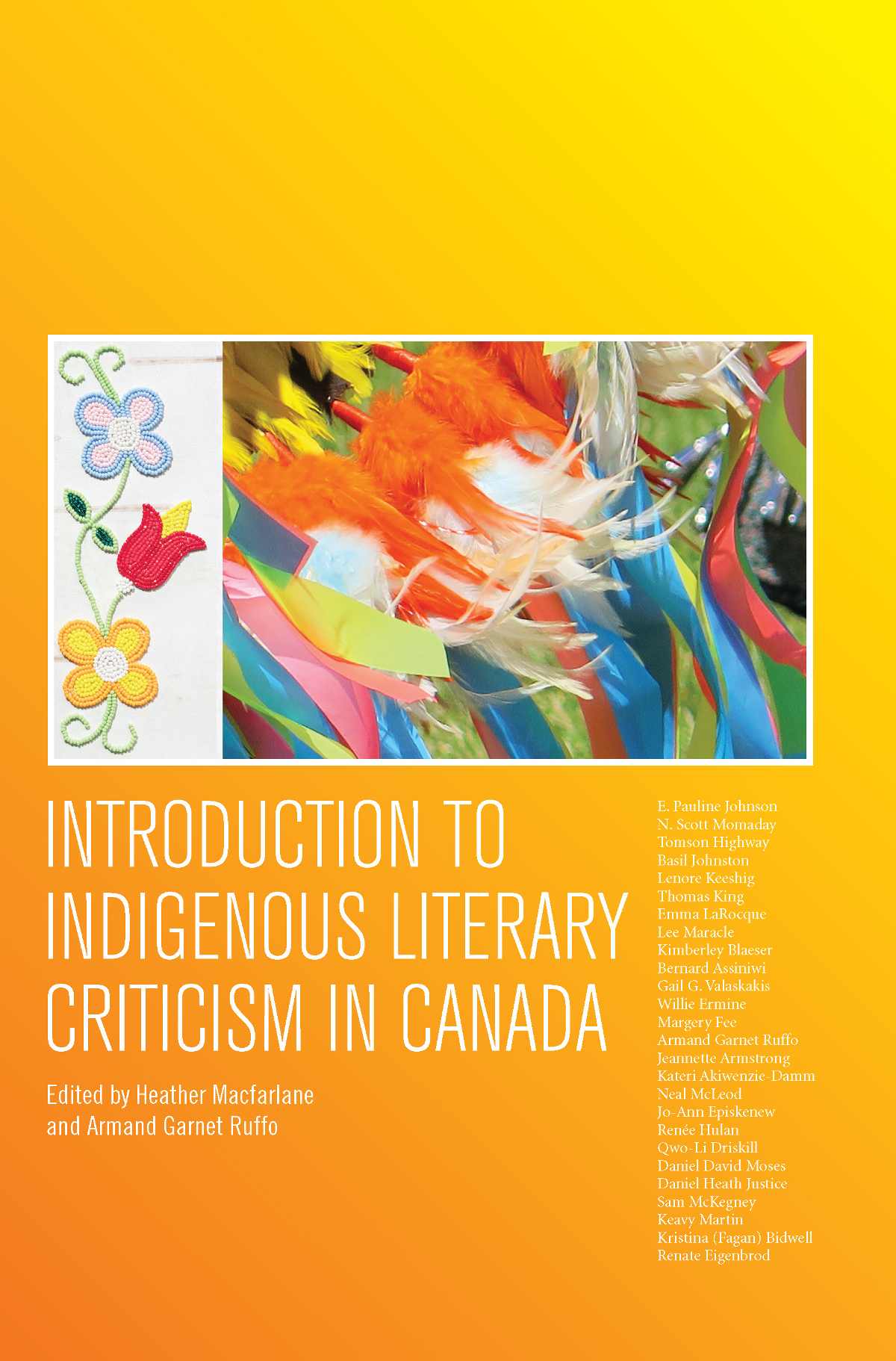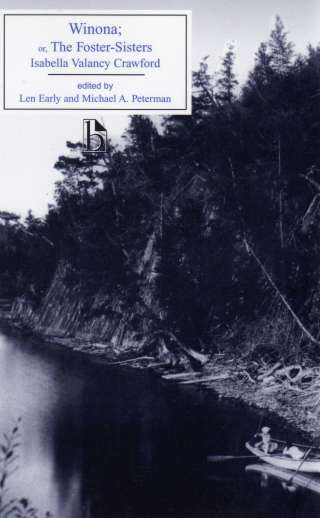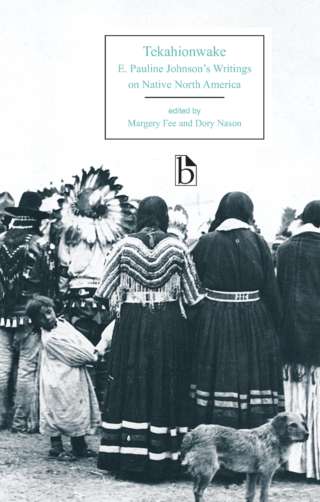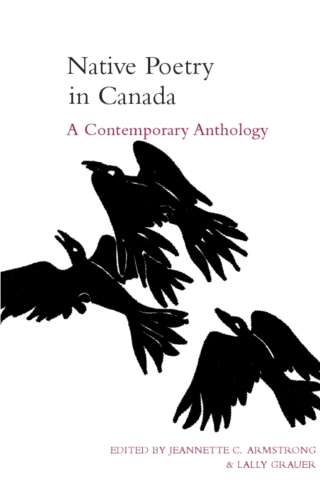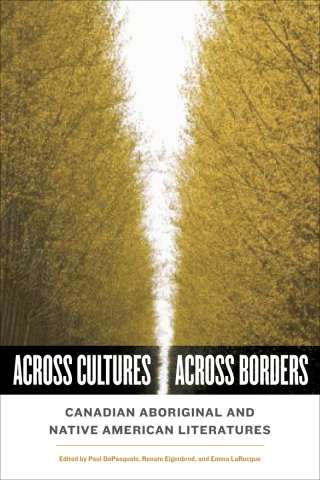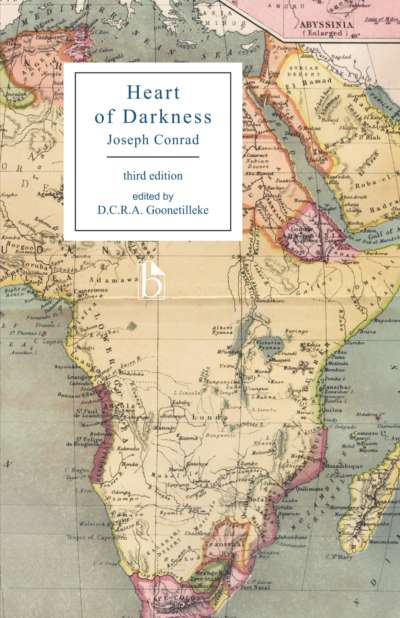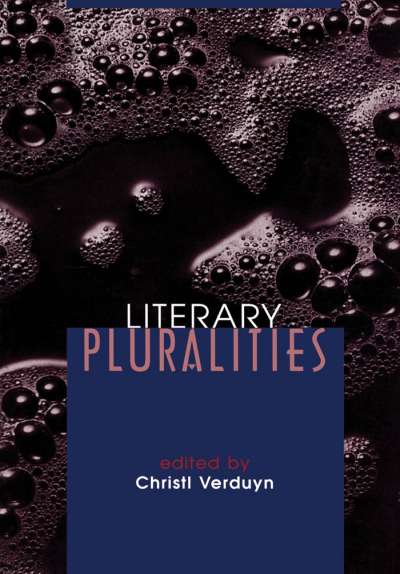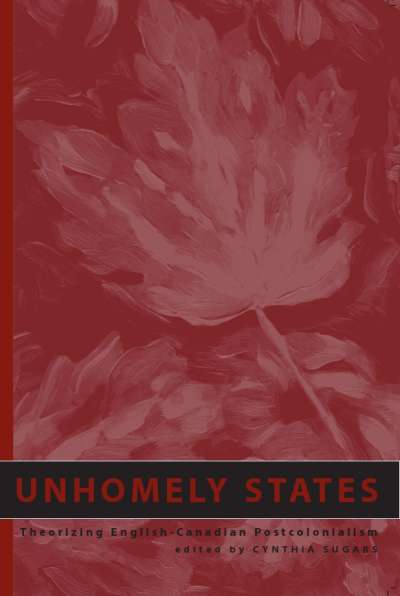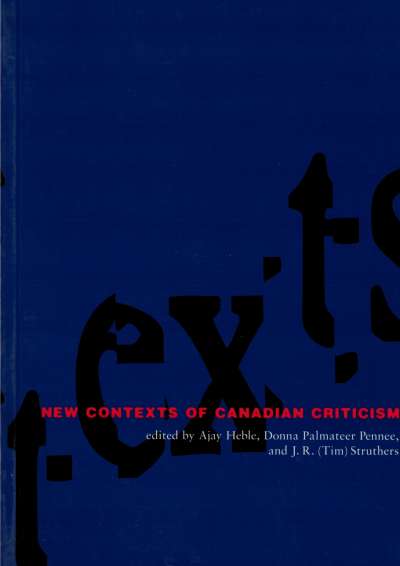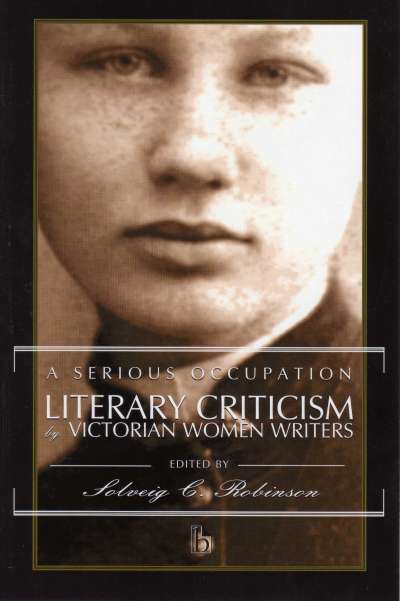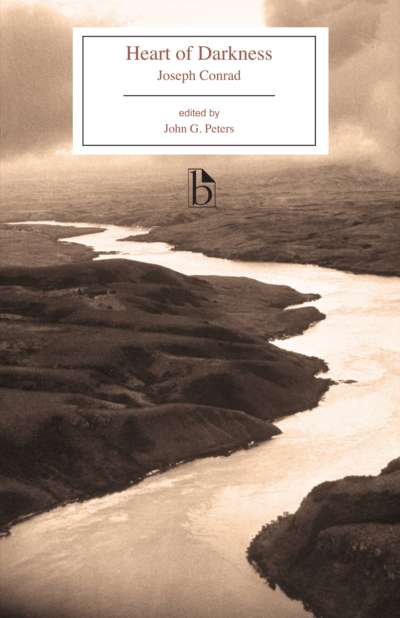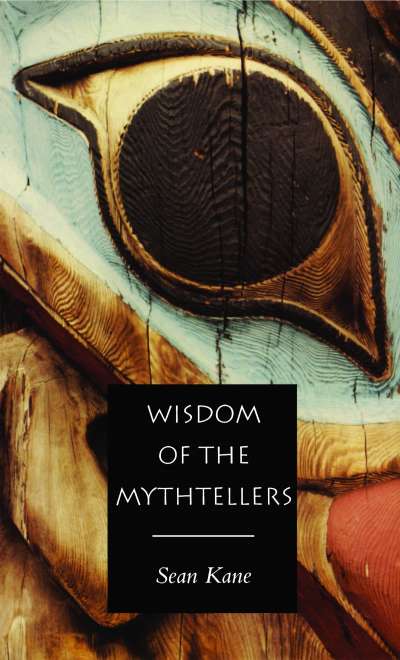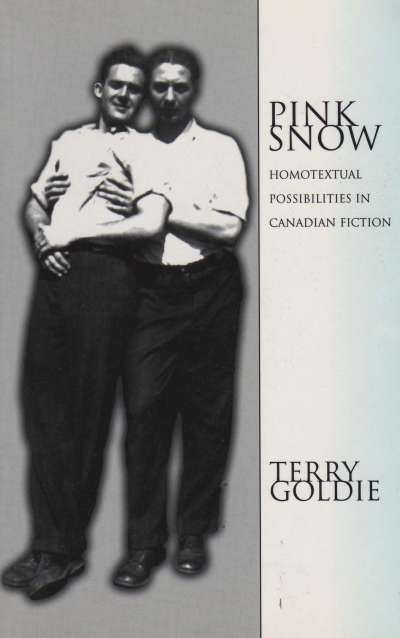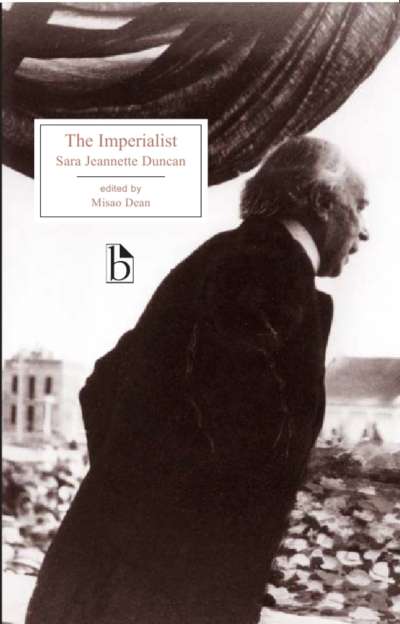Introduction to Indigenous Literary Criticism in Canada collects 26 seminal critical essays indispensable to our understanding of the rapidly growing field of Indigenous literatures. The texts gathered in this collection, selected after extensive consultation with experts in the field, trace the development of Indigenous literatures while highlighting major trends and themes, including appropriation, stereotyping, language, land, spirituality, orality, colonialism, residential schools, reconciliation, gender, resistance, and ethical scholarship.
For an excerpt from Introduction to Indigenous Literary Criticism in Canada, please see our blog post: Lenore Keeshig [Tobias], “Stop Stealing Native Stories”.
Comments
“An urgently needed collection that brings together some of the most provocative ‘word drummers’ in Indigenous literary criticism, from E. Pauline Johnson’s rage against the appropriation of voice, to Qwo-Li Driskill’s righteous defense of the ‘sovereign erotic,’ to Jeannette Armstrong’s powerful invocation of ‘Land Speaking.’ These 26 essays will surprise and delight, challenge and confront, enrich and amaze a diverse range of readers of Indigenous literature—students, teachers, scholars, and curious generalists alike.” — Sophie McCall, Simon Fraser University
“Heather Macfarlane and Armand Garnet Ruffo have assembled here a lifesaver for teachers and students of Indigenous literatures in Canada. By gathering in one volume essential essays derived from Indigenous epistemologies and ways of being, they offer cultural pathways that can help readers understand and delight in the renaissance (resonance) of Indigenous literary writing in the part of Turtle Island we call Canada.” — Daniel Coleman, McMaster University
“Our storytellers are not only narrative artists but theorizers, philosophers, and intellectuals who create, fortify, and sustain communities. Macfarlane and Ruffo illustrate this beautifully in this collection, showing how literary criticism is not only the most vibrant and dynamic gift from Indigenous intellectuals, but the most exciting.” — Niigaanwewidam Sinclair, University of Manitoba
“Clearly, Heather Macfarlane and Armand Garnet Ruffo’s edited collection of twenty-six influential essays has a wide relevance and thus a wide range of applications, not only for teachers and readers of Indigenous literature and Indigenous studies, but also for teachers and readers of Canadian literature and the humanities more broadly … From beginning to end, this collection has an uncannily logical flow and dialectical thrust, almost seamlessly connecting discussions of traditional knowledge, history, ideology, appropriation, orality, diaspora, gender and sexuality, and residential schools, among other issues.” — Jeff Fedoruk, Canadian Literature
Preface
Opening a Window by Heather Macfarlane and Armand Garnet Ruffo
E. Pauline Johnson, “A Strong Race Opinion: On the Indian Girl in Modern Fiction” (1892)
gender ˜ stereotypes ˜ sovereignty/nationhood ˜ appropriation of voice
N. Scott Momaday, “The Man Made of Words” (1970)
imagination ˜ language ˜ orality ˜ spirituality ˜ land
Tomson Highway, “On Native Mythology” (1987)
theatre ˜ orality ˜ language ˜ imagination ˜ spirituality/traditional knowledge
Basil Johnston, “One Generation from Extinction” (1990)
language ˜ land ˜ spirituality/traditional knowledge ˜ orality
Lenore Keeshig [Tobias], “Stop Stealing Native Stories” (1990)
appropriation of voice ˜ stereotypes ˜ spirituality/traditional knowledge
Thomas King, “Godzilla vs. Post-Colonial” (1990)
post-colonialism ˜ hybridity ˜ stereotypes ˜ imagination
Emma LaRocque, “Preface or Here Are Our Voices—Who Will Hear?” (1990)
colonialism ˜ stereotypes ˜ language ˜ orality ˜ appropriation of voice ˜ “authenticity” ˜ resistance ˜ ethical scholarship
Lee Maracle, “Oratory: Coming to Theory” (1992)
orality ˜ traditional knowledge/spirituality ˜ ethical scholarship ˜ language
Kimberley Blaeser, “Native Literature: Seeking a Critical Centre” (1993)
imagination ˜ stereotypes ˜ nationhood ˜ colonization ˜ ethical scholarship
Bernard Assiniwi, “Je suis ce que je dis que je suis” / “I am what I say I am” (1993)
imagination ˜ “authenticity” ˜ hybridity ˜ nationhood
Gail G. Valaskakis, “Parallel Voices: Indians and Others, Narratives of Cultural Struggle” (1993)
stereotypes ˜ appropriation of voice ˜ gender ˜ “authenticity”
Willie Ermine, “Aboriginal Epistemology” (1995)
land ˜ spirituality/traditional knowledge ˜ language ˜ community ˜ ethical scholarship
Margery Fee, “Writing Orality: Interpreting Literature in English by Aboriginal Writers in North America, Australia and New Zealand” (1997)
orality ˜ nationhood ˜ “authenticity”/hybridity ˜ resistance ˜ pan-Indigenous experience
Armand Garnet Ruffo, “Why Native Literature?” (1997)
appropriation of voice ˜ spirituality/traditional knowledge ˜ healing ˜ land ˜ stereotypes ˜ community
Jeannette Armstrong, “Land Speaking” (1998)
land ˜ language ˜ imagination ˜ spirituality/traditional knowledge ˜ orality ˜ nationhood ˜ resistance and empowerment
Kateri Akiwenzie-Damm, “Erotica, Indigenous Style” (2000)
sexuality ˜ gender ˜ healing ˜ pan-Indigenous experience ˜ nationhood
Neal McLeod, “Coming Home through Stories” (2001)
diaspora ˜ language ˜ imagination ˜ hybridity/“authenticity”
Jo-Ann Episkenew, “Socially Responsible Criticism: Aboriginal Literature, Ideology, and the Literary Canon” (2002)
stereotypes ˜ ethical scholarship ˜ nationhood ˜ colonization
Renée Hulan, “‘Everybody likes the Inuit’: Inuit Revision and Representations of the North” (2002)
stereotypes ˜ “authenticity” ˜ appropriation of voice ˜ gender ˜ autobiography ˜ nationhood
Qwo-Li Driskill, “Stolen from Our Bodies: First Nations Two-Spirits/Queers and the Journey to a Sovereign Erotic” (2004)
sexuality ˜ two-spirits ˜ violence ˜ gender ˜ erotica ˜ healing ˜ nationhood
Daniel David Moses, “The Trickster’s Laugh: My Meeting with Tomson and Lenore” (2004)
imagination ˜ traditional knowledge/spirituality ˜ resistance
Daniel Heath Justice, “The Necessity of Nationhood: Affirming the Sovereignty of Indigenous National Literatures” (2005)
nationhood ˜ immigrants and indigenous peoples ˜ traditional knowledge/spirituality ˜ hybridity ˜ healing
Sam McKegney, “Indigenous Writing and the Residential School Legacy: A Public Interview with Basil Johnston” (2009)
residential schools ˜ violence ˜ healing ˜ resistance
Keavy Martin, “Truth, Reconciliation and Amnesia: Porcupines and China Dolls and the Canadian Conscience” (2009)
healing ˜ reconciliation ˜ residential schools ˜ colonialism/violence/racism ˜ spirituality/traditional knowledge
Kristina (Fagan) Bidwell, “Code-Switching Humour in Aboriginal Literature” (2009)
language ˜ humour ˜ “authenticity” ˜ resistance
Renate Eigenbrod, “A Necessary Inclusion: Native Literature in Native Studies” (2010)
nationhood ˜ ethical scholarship ˜ orality/language
Permissions Acknowledgements
Heather Macfarlane is Adjunct Professor in the Department of English at Queen’s University; her publications include articles on the road trip, Indigenous language in theatre, and Franco-Indigenous texts.
Armand Garnet Ruffo is Queen’s National Scholar in Indigenous Literatures and Languages at Queen’s University; he is also an Ojibway poet, writer, and filmmaker. His book Norval Morrisseau: Man Changing into Thunderbird (Douglas & McIntyre, 2014) was nominated for the Governor General’s Literary Award for Non-Fiction.

